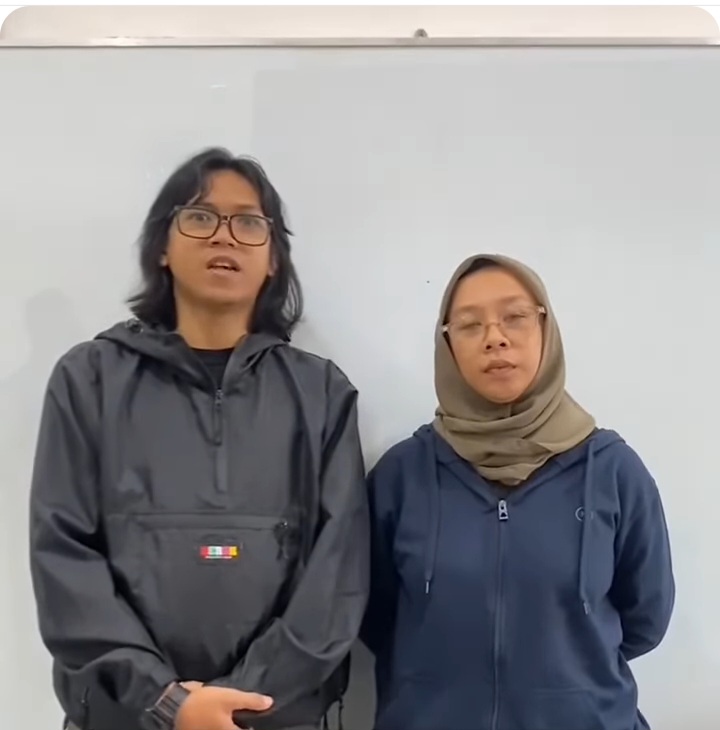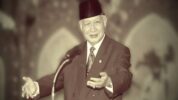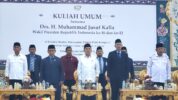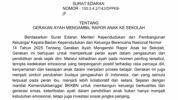Only A Song. Police Intimidation of Sukatani Highlights Growing Threat to Free Expression in Indonesia
JAKARTA, RAKYAT NEWS – “Apalah arti sebuah lagu, oh aduhai, sungguh aduhai”. “True art flourishes in the freedom of expression, and its silence is the death of a society’s voice.”
Amnesty International Indonesia has expressed deep concern over the recent withdrawal of a musical work created by the band Sukatani, which was critical of the police. The band’s song, Bayar Bayar Bayar, went viral on social media, only to be retracted after the group issued an apology video to the National Police Chief and his staff. Usman Hamid, the Executive Director of Amnesty International Indonesia, has condemned the actions surrounding the incident and demanded accountability from the authorities.
On Thursday, February 20, 2025, the band Sukatani made a surprising announcement by posting an apology video addressed to the National Police Chief and the police institution. The apology followed the viral spread of their song Bayar Bayar Bayar, which contained lyrics criticizing the police. In addition to the apology, Sukatani stated that they would withdraw the song from circulation and urged their followers to remove it from social media platforms. This unexpected turn of events has raised serious concerns about artistic freedom and state censorship in Indonesia.
He emphasized that such an apology video could not have been produced without significant pressure. He stated, “Amnesty deeply regrets the recurring incidents of artwork being removed from the public space. It is clear that without coercion, Sukatani would not have issued an apology to the police.” He called for the National Police Chief (Kapolri) to immediately investigate the matter and address any forms of pressure or intimidation that may have led to the band’s actions.
Amnesty International urged the police to identify those responsible for pressuring Sukatani to retract their song and create the apology video. The organization also stressed the importance of protecting freedom of expression and ensuring that artists like Sukatani can freely create and share their work without fear of reprisal. “The police must guarantee that every citizen, including artists, can freely express themselves without the threat of intimidation or harassment,” said Hamid.
The right to artistic expression is a cornerstone of human rights. According to Amnesty International, music serves as an essential outlet for individuals to voice their concerns and reflect on the social realities they face. Freedom of artistic expression is safeguarded by both international and domestic laws, including Article 19 of the International Covenant on Civil and Political Rights (ICCPR), which Indonesia ratified through Law No. 12 of 2005, and Article 27 of the Universal Declaration of Human Rights.
In recent months, art has become an increasingly targeted form of expression in Indonesia. In December 2024, the government also retracted a piece of visual art by artist Yos Seprapto. Additionally, just days ago, the performance of a play titled Wawancara Dengan Mulyono (Interview with Mulyono) was banned from being staged. These actions highlight a troubling trend of censorship and suppression of free expression in the arts, especially when works serve as vehicles for social critique.
Hamid argued that silencing art is akin to silencing human rights. “When the government stifles artistic expression, it stifles the fundamental rights of citizens to freely discuss and challenge the realities they face,” he remarked. The role of the police, he asserted, should be to protect human rights, not to suppress them. Such censorship also reflects a broader trend of authoritarian practices, which have persisted in the country even after the Reformasi period in 1998.
The actions against Sukatani, along with previous incidents of censorship, underscore the growing concern that artistic freedom is under threat in Indonesia. “The government’s fear of artistic expression is a clear indication of its aversion to peaceful social criticism,” Hamid explained. “Censorship and the banning of art are practices that should have no place in a democratic society, especially one that claims to support human rights.”
Amnesty International called for an end to these authoritarian practices, demanding that the space for art and culture remain free from interference by the state or law enforcement. “We must protect artistic expression from unwarranted pressure and ensure that artists can create without fear of repercussions,” said Hamid. “This is essential for a vibrant and free society.”
The situation with Sukatani has highlighted the need for greater awareness and action on behalf of those who use art to express their views on societal issues. The authorities must address these issues with transparency, ensuring that artists are not intimidated or forced to retract their works in the future. Until that happens, the freedom of expression in Indonesia remains at risk.(Uki Ruknuddin)



























Tinggalkan Balasan